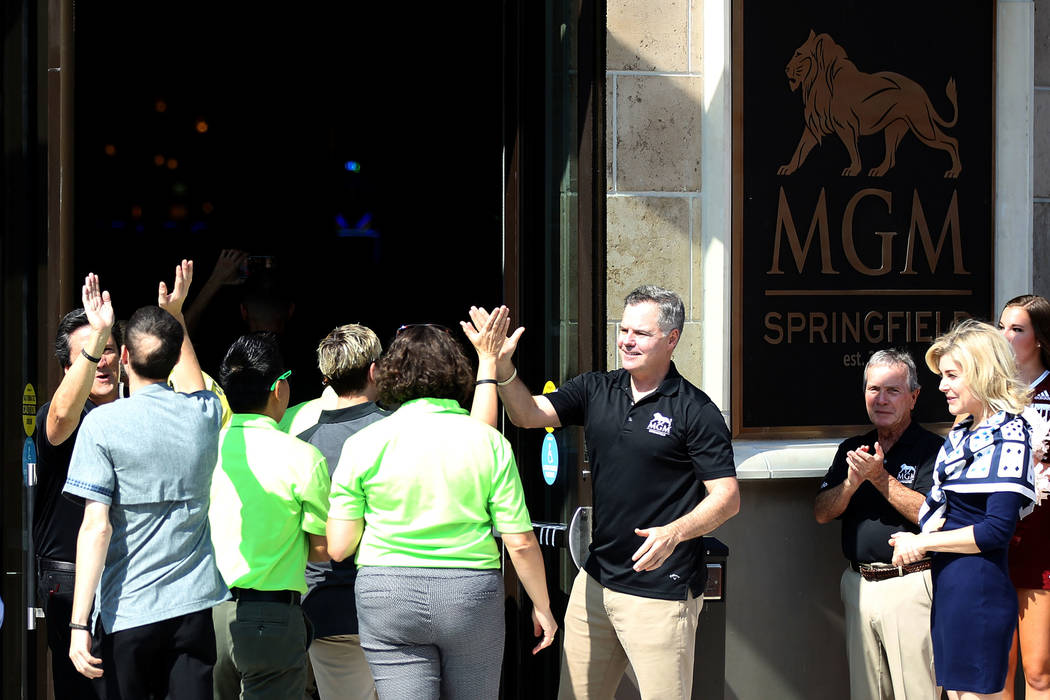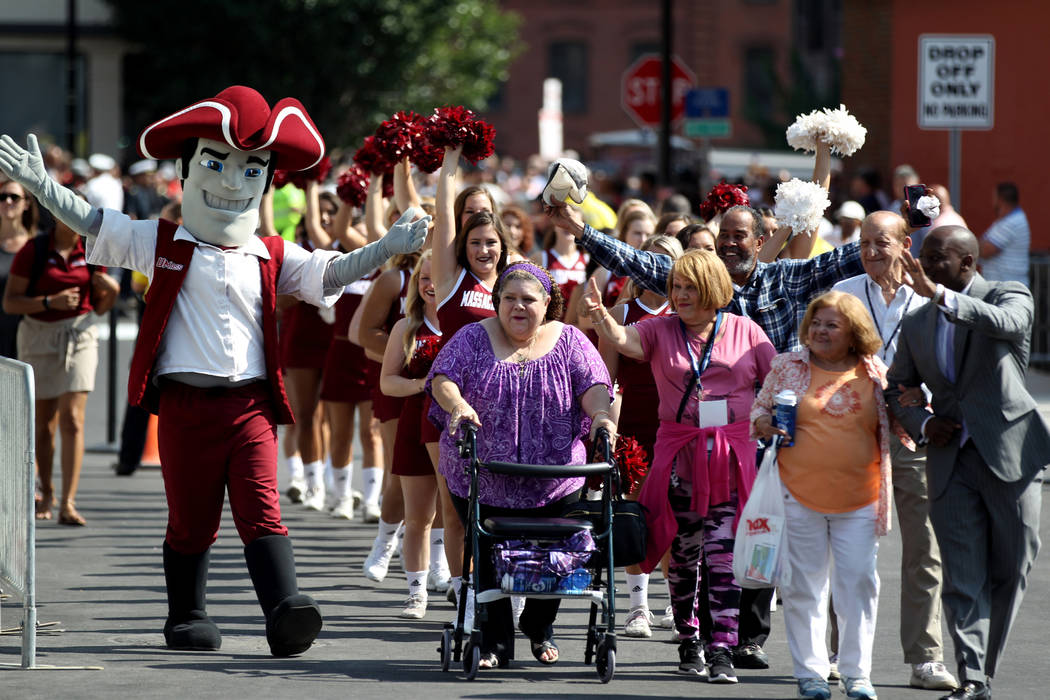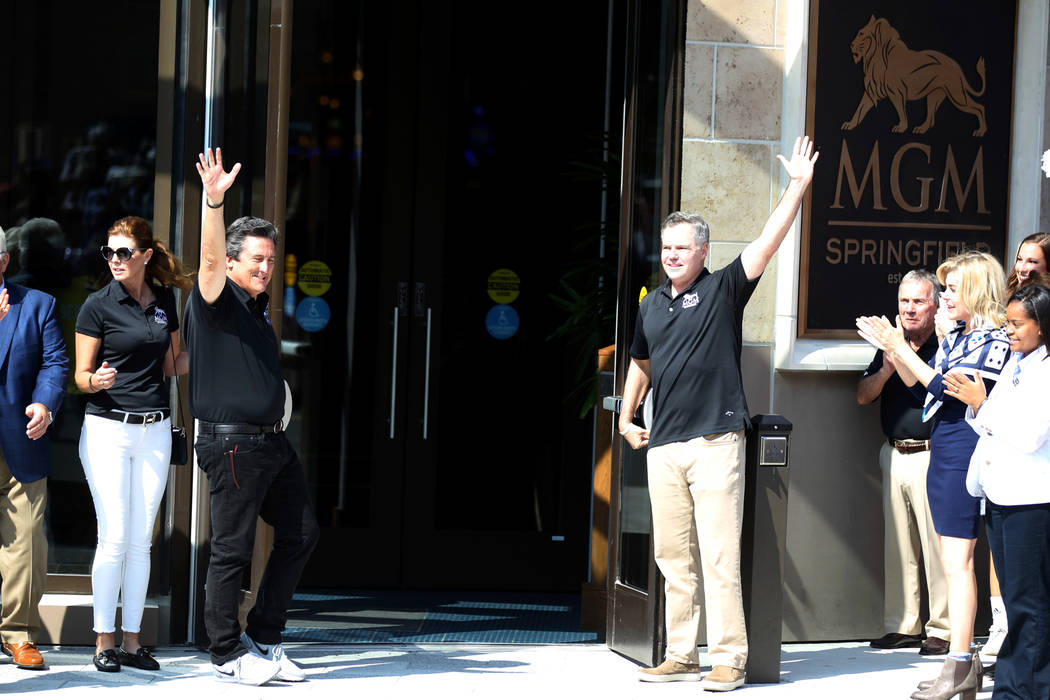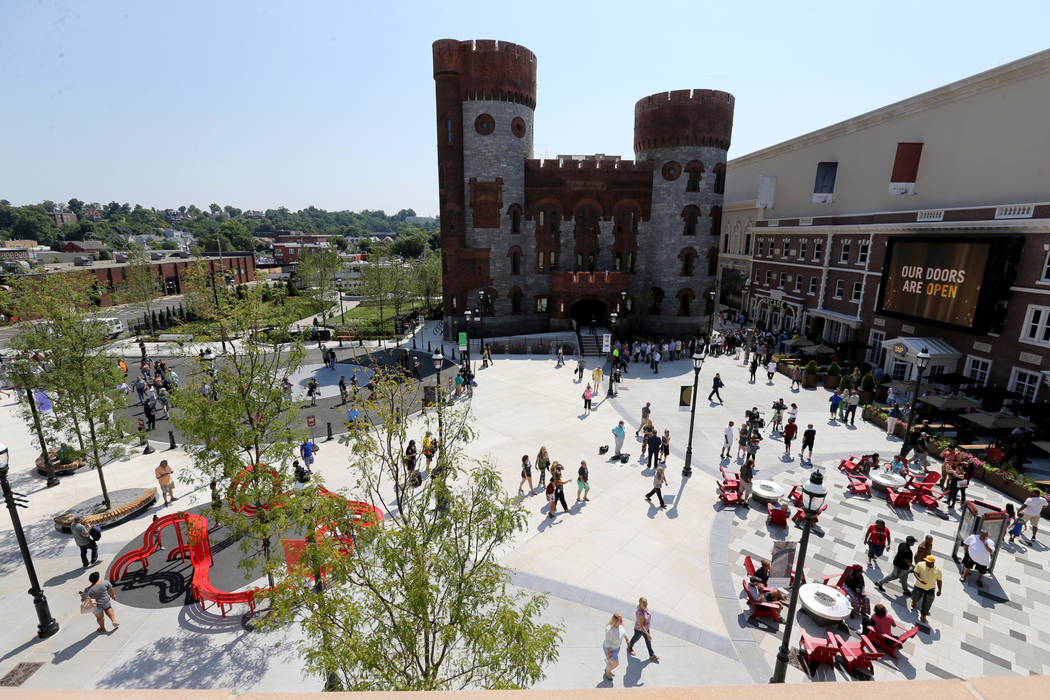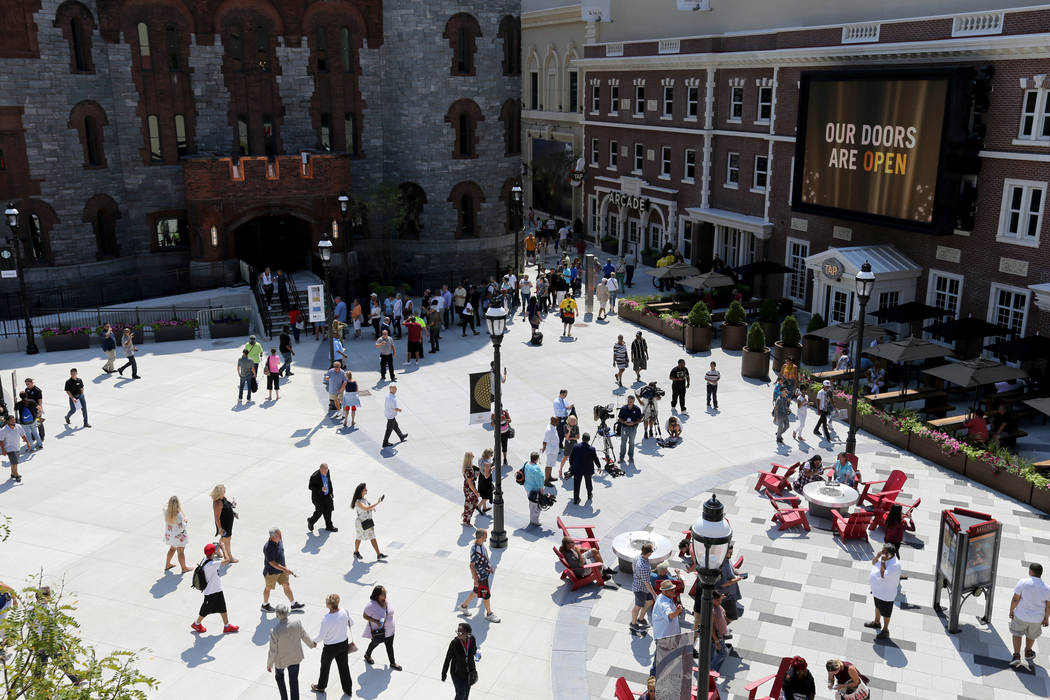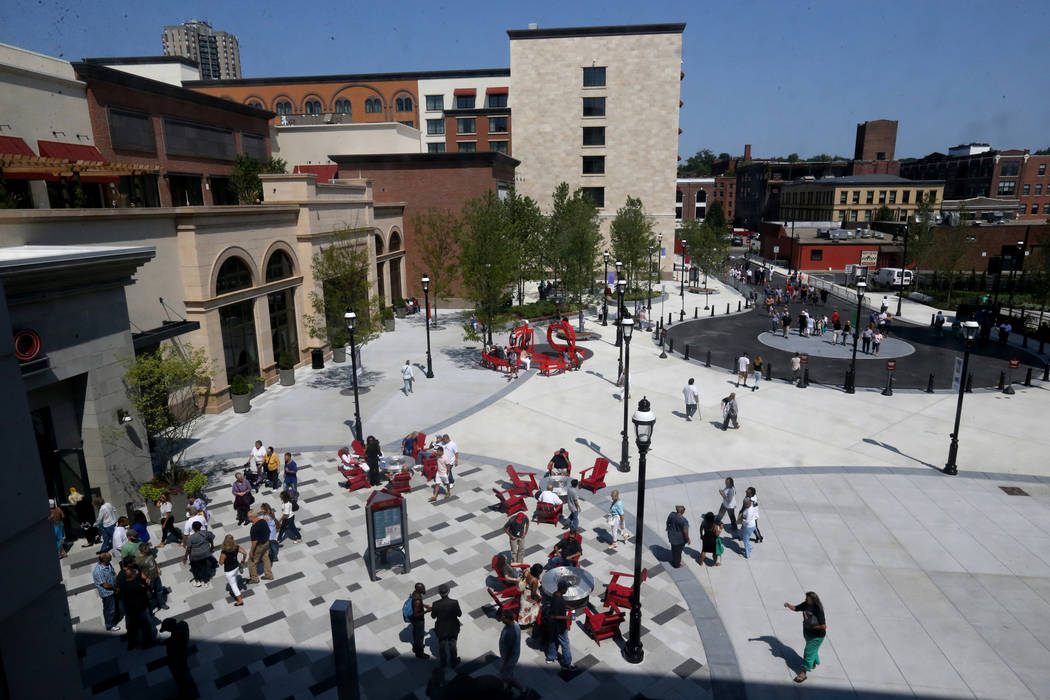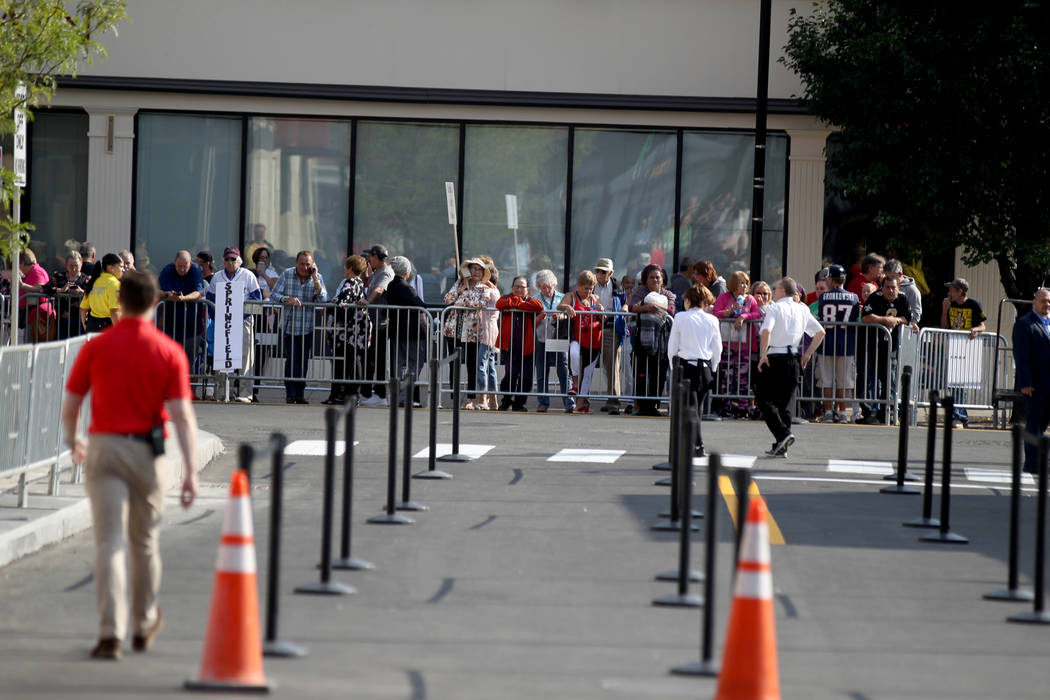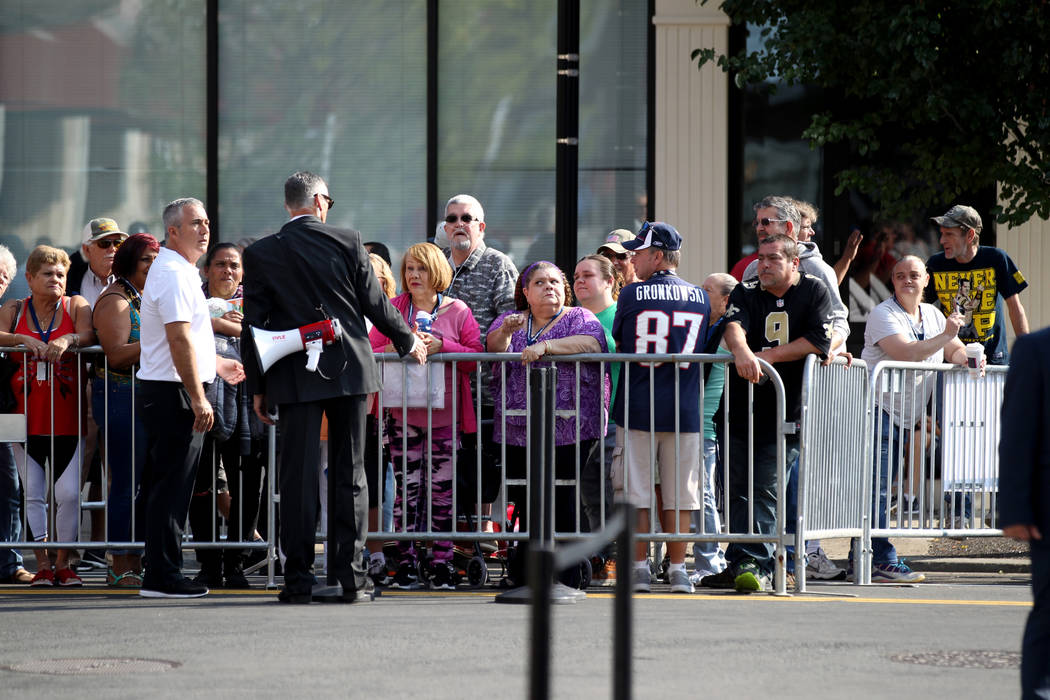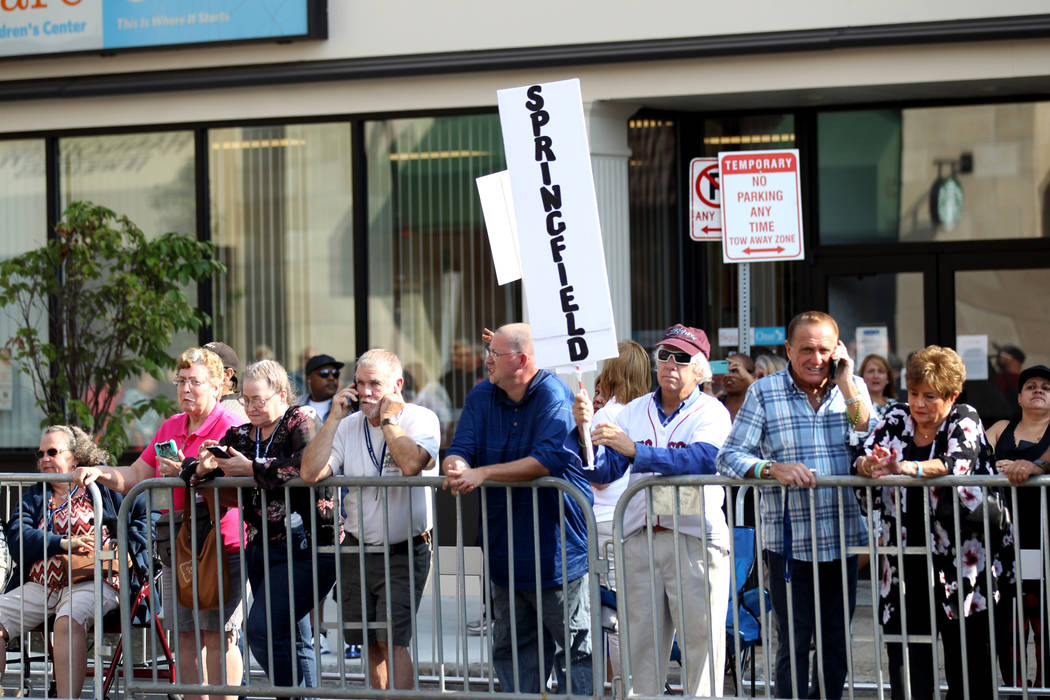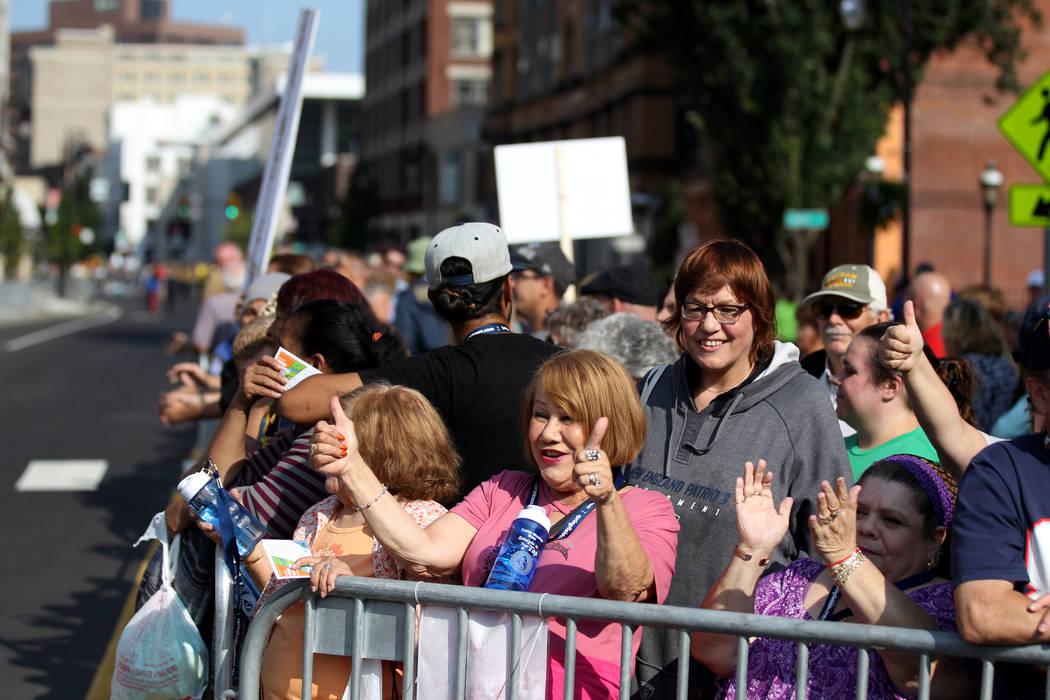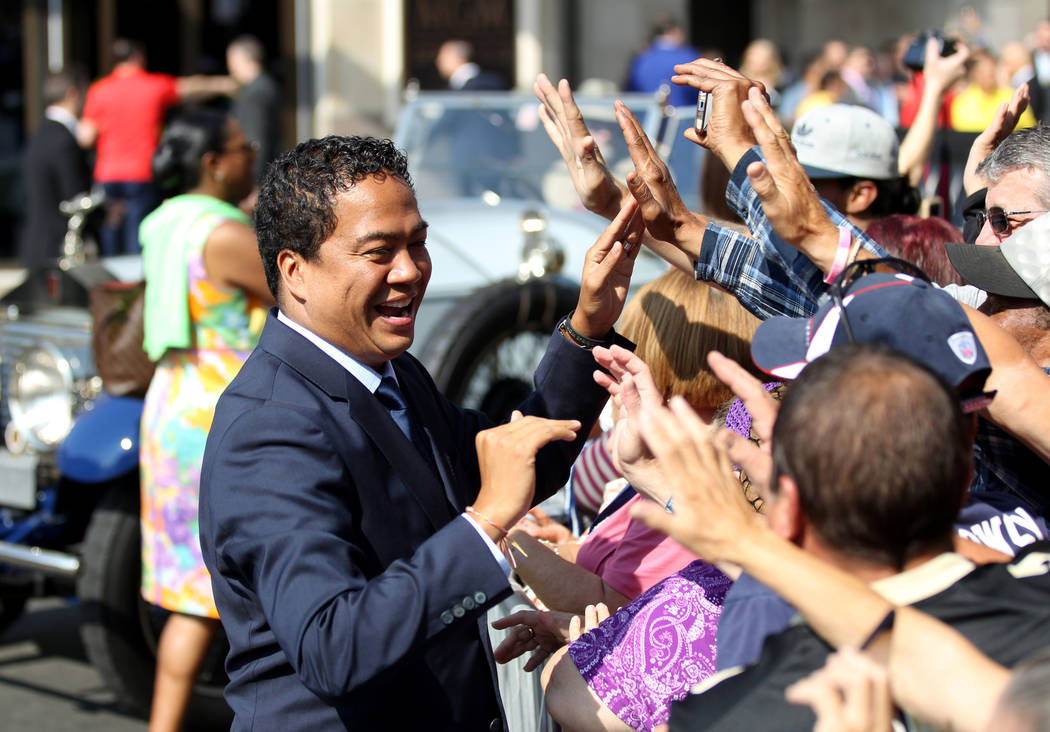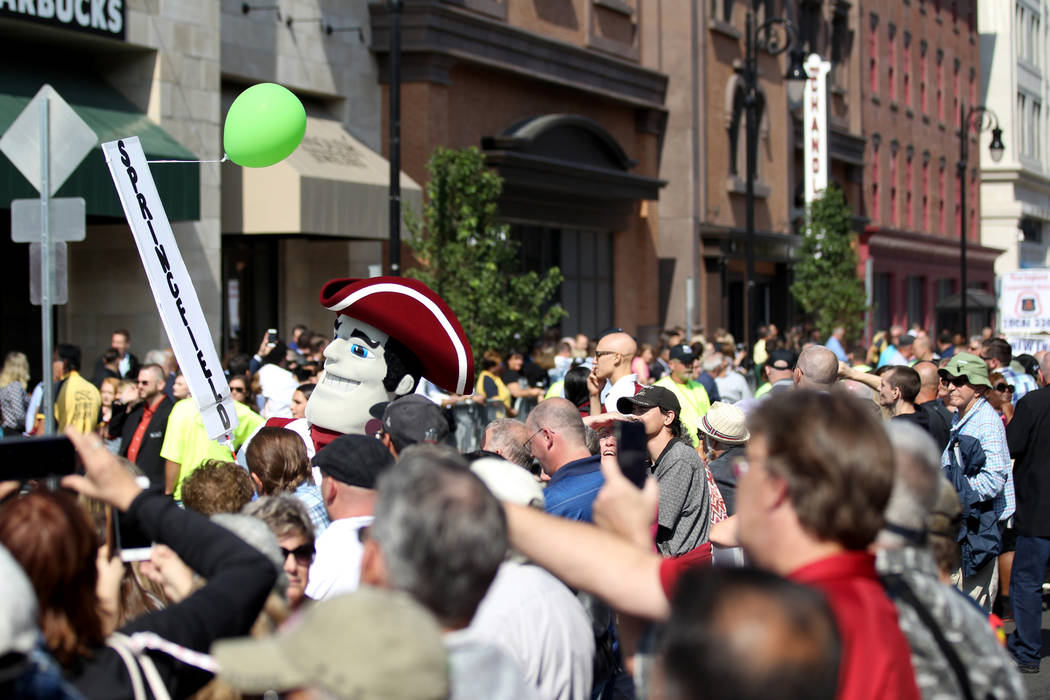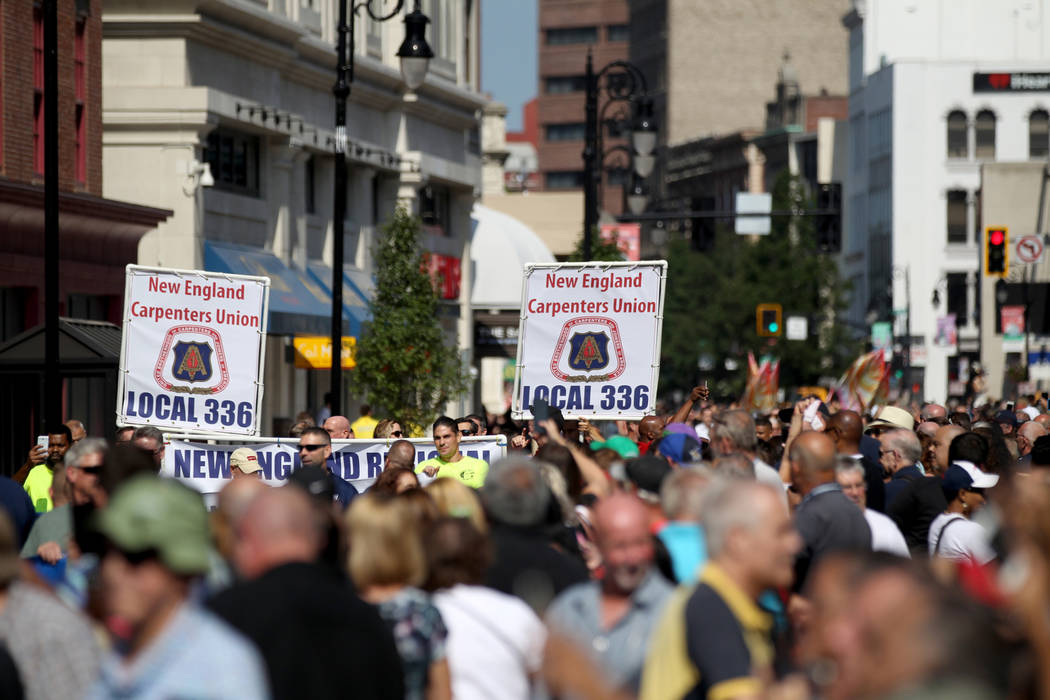Criticized in Nevada, MGM Resorts CEO finds praise in Massachusetts
SPRINGFIELD, Mass. — For MGM Resorts International Chairman and CEO Jim Murren, Friday was quite the New England homecoming.
He was happily high-fiving dozens of his 3,000 MGM Springfield employees as thousands of customers waited in a line that snaked around the four square city blocks of Massachusetts’ first integrated resort.
By all accounts, it was a successful opening.
Public officials were happy to have the entertainment of a Las Vegas casino without having something that looked like a Vegas casino.
Just seven years earlier, the site literally was a disaster zone.
“From the rubble rises a phoenix,” Springfield Mayor Domenic Sarno said. “Many did not give us a chance that we would, let alone recover, but more importantly move forward after the devastating EF-3 tornado that hit one-third of our beloved Springfield on June 1, 2011.”
A bureaucratic odyssey
Through resiliency, good planning and policy decisions, Sarno said, Springfield completed a bureaucratic odyssey that included pitches from five casino companies, two referendums and thousands of hours of public meetings.
Murren said last week that real estate executive and eventual MGM Springfield partner Paul Picknelly took him to the top floor of one of Springfield’s tallest buildings to look out over the devastated landscape after the tornado. Blue tarps securing what was left of some buildings dotted the neighborhood where MGM would end up building the six-story, 250-room boutique hotel and its 125,000-square-foot casino.
Seven years later, Murren was hailed as a hero for successfully completing a project that fits into the historic fabric of the community.
“We have a philosophy that’s not shared by everybody, but the philosophy is not to create a product that could just be airlifted from market to market, but in fact has deep historical roots,” Murren said in his first interview with the Review-Journal since the Oct. 1 mass shooting at Mandalay Bay, an MGM property.
“We did that in Detroit with an art deco product there. We did that at National Harbor with the inspiration of our capital’s monuments,” he said. “Here, we had so much to draw upon, more than 300 years of history in Springfield, and, yes, I had a head start because I’m from the area and I know quite a bit about New England and this industrial city.”
Connecticut roots
Murren, 56, grew up in Fairfield, Connecticut, and received his undergraduate degree from Trinity College in Connecticut. Now he is trying to reel in customers who have spent many of their entertainment dollars in two tribal casinos, Foxwoods and Mohegan Sun, in Connecticut.
MGM took a not-so-subtle swipe at Foxwoods and Mohegan Sun in a banner at Bradley International Airport in Hartford, Connecticut, about 25 miles south of MGM Springfield. MGM is depicted on the banner as “a casino in the middle of town, not in the middle of nowhere.”
Murren’s appreciation for art history and urban studies led him to the decision to transport Springfield’s historic armory and the 131-year-old deconsecrated First Spiritual Church to the MGM Springfield campus.
“We took on the challenge of renovating, preserving, rehabilitating buildings that had been destroyed by a tornado and embracing it into this very rich urban fabric — and that included moving a church on Easter Sunday,” Murren said.
“There are only two companies in the country that can pick up an over 100-year-old building of this size and safely transport from one site to another, several hundred yards,” he said. “We were a little nervous, but it came out perfectly.”
The Springfield success story has eased some of the frustration Murren has felt from the criticism the company has received for filing a lawsuit against the survivors of the Oct. 1 shooting, a legal maneuver he believes is misunderstood.
“It’s important that we have this kind of conversation. That act — which we’re coming up on the anniversary of that despicable act of a lone, evil man — rocked our community, rocked the country, rocked the world,” Murren said.
“From that moment, we’ve been on the ground helping victims’ families, many of which were my employees,” he added. “The challenge has been in complicated cases like this that we want to get to the finish line and we want everybody to have a fair resolution.”
Multiple court cases
Murren said that with multiple court cases in multiple states, the process of resolving them was going to drag on for years, “which is even more tragic and more unfair to the victims and their families.”
MGM’s strategy was to employ a law enacted in 2002 after the terrorist attacks of Sept. 11, 2001, that provides for consolidating state cases in federal court to speed the process.
“If we’re able to do that, everyone is going to be treated fairly very, very quickly,” he said. “To be clear, we’re not looking for anything (from the victims). We’re not looking for a nickel. These people have suffered. We’ve all suffered. But they especially have suffered more than anyone could ever ask of anybody. We’re just trying to get home.”
Murren said he knows how horrible it looks for a company to file a lawsuit against victims to get case consolidation, but he thinks the message is finally coming across. That seems to be the case in Massachusetts, where Murren is more hero than villain.
“It obviously was painful,” he said. “The headlines were awful early on. It sounded awful to me. But as people have started to learn to put this into context and Massachusetts has had the benefit of time, everyone we’ve talked to understands what we’re trying to accomplish. And if we’ve accomplished anything as a company, it’s people recognize us as a good corporate citizen. We’re recognized as that in Nevada. We’re recognized as that in Massachusetts now. We just want the right thing. We want to do the right thing, and I think this is the right thing.”
Contact Richard N. Velotta at rvelotta@reviewjournal.com or 702-477-3893. Follow @RickVelotta on Twitter.



